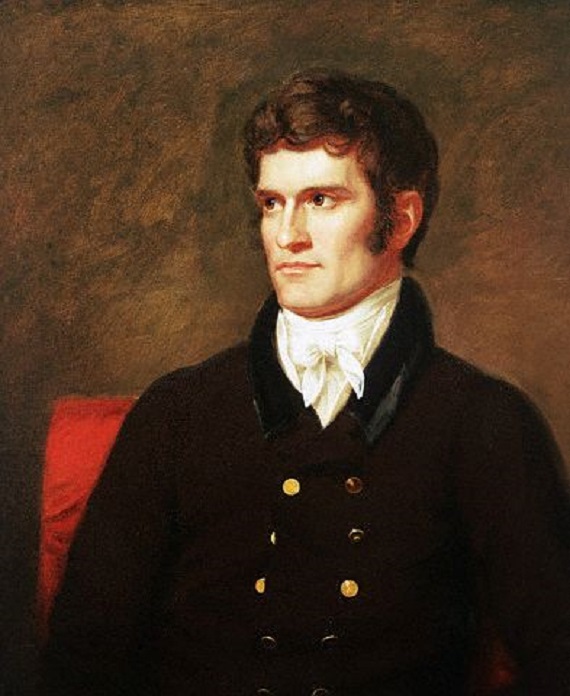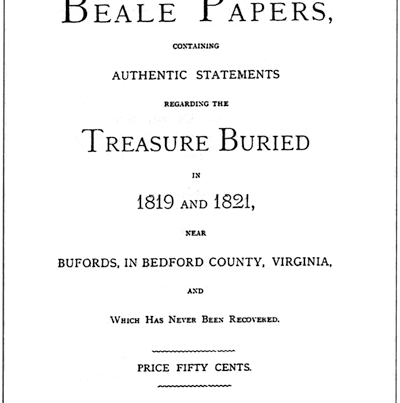This piece was originally published at Chronicles Magazine and is reprinted here by permission.
The following speech critical of the conservative establishment is one that I did not give at The Charleston Meeting, in Charleston, S.C., whither I was invited by its organizer Gene d’Agostino, as a speaker for the evening of April 14. After espying copies of my book on antifascism for sale on a table in the room where I spoke, and after considering that my speech might unsettle some in the audience, I took the path of prudence (or perhaps timidity). I instead delivered my customary lecture on antifascism, which was well-received. But some of the audience, who are also Chronicles subscribers, expressed disappointment that I had “pulled my punches.” I therefore promised them that the remarks they did not hear would soon be appearing online. Here they are:
About three years ago, I made the mistake of joining an organization called the Association for Mature American Citizens. I sent in membership dues with the thought that I would be sponsoring a truly serious alternative to the AARP, which has become a tiresome appendage of the Democratic Party. Since then, I have been flooded with copies of AMAC’s monthly magazine, which offers what look like position papers produced for the Heritage Foundation or the American Enterprise Institute. Some of these commentaries, particularly on economic questions, merit attention, but others most certainly do not. In just about every issue, one encounters tendentious comparisons between the current Democratic Party and the “Southern party of slavery” before and during the Civil War.
A feature article in the March AMAC magazine includes these lines: “This sort of absolutism and refusal to accept that Americans can be allowed to differ on important issues has been seen before in Democrats from another era—the Southern Fire-Eaters of the 1850s.” Further, “during the course of that decade, Southern politicians not only abandoned a previous willingness to compromise on policy, but also adopted an approach whereby northerners were asked not just to accept Southern demands, but to publicly state they were just.”
Unfortunately for the statement’s veracity, the situations being compared are totally different. Most Southern politicians in the 1850s did take a stand for slavery but were not demanding that the North adopt this institution or, in some cases, reintroduce it into their societies. Unlike all Democrats and some Republicans today, Southern senators were not demanding that transgendered men be allowed to compete in women’s athletic competitions or that our border with Mexico remain open. The social revolutionaries of the 1850s were not white Southerners but abolitionist Republicans, who in many cases expressed support for the violence against slaveowners unleashed by John Brown and his followers.
Please note that I am not defending human bondage any more than I am the violence committed by its more agitated opponents. But I find no honest reason to liken a conflict that took place 170 years ago to the one that is now raging between self-defined traditional Americans and cultural radicals. Republicans and authorized conservatives may be offering their comparison as virtue signaling, which is also why they extol Reconstruction, an unfortunate development that did nothing to further race relations or constitutional government in our country. Republican politicians also meekly accept and sometimes even actively support the dismantling of memorial monuments celebrating Confederate heroes. In any case, I haven’t heard many Republican politicians protest this practice. Also unsettling for me was listening two years ago to South Carolina’s senior senator Lindsey Graham chew out a NASCAR driver who dared to have a Confederate battle decal on his vehicle. Several years before that, the same image was on a flag hanging next to the statehouse in Columbia, a juxtaposition which, as far as I am aware, never caused Graham to lapse into spasms of outrage.
Recently I received a note from a Chronicles reader who praised our magazine for refusing to “bash the South.” I responded that I loathe that practice and never miss an opportunity to bash those who engage in it. At the same time, I hold no brief for slavery, although I do respect those who tried to protect their region against invasion, and it should be remembered that most Southern soldiers in the 1860s did not own slaves.
Finally, unlike Southern conservatives of my acquaintance, I respect Lincoln as an American nationalist who, in his mind, was holding the nation together, albeit through very brutal means. As an historian I can understand the values and concerns of the actors on both sides of what I view as a tragic, avoidable bloodbath. And no, I don’t think we’d be stuck with slavery in the present world even if the South had been allowed to secede. Slavery would have disappeared there as a socioeconomic anachronism, just as had happened earlier in my own state of Pennsylvania.
The more relevant question is why Republican publicists and organizations have made a fetish out of bashing the white South, from whence the GOP draws many of its votes. This behavior engages my interest more than the question of who took which side in the War of Southern Secession. Since most Southern whites don’t seem to care about how abusively politicians and journalists treat their ancestors, the bashers have been given a clear opening.
Further, given the demographic changes that have taken place in the South, much of its population is no longer even intergenerationally Southern. Atlanta and the surrounding area are filling up with newly arrived population, much of it from the Third World. Electorally and sociologically, this once recognizably Southern region is today closer to San Francisco than the Atlanta of 1960. Contrary to what I was told when I was young, race relations in the South, particularly in large cities, are no better than elsewhere. Black voters and black organizations view white Southerners as their historic oppressors. I am therefore led to believe that the inflammatory rhetoric of Stacey Abrams and Raphael Warnock fully reflect the attitudes of their nonwhite voters.
Since there seems to be an ever-shrinking base of support for the historic Southern heritage, politicians in neither national party are running to defend it. According to Aristotle’s Politics, if a region sees its original population replaced, it is no longer politically and socially what it had been. This truism applies to the South, which has lost its sense of a shared past. Certainly, the metropolitan South is no longer culturally and demographically what it once was, a difference that dawns on someone who, upon visiting an historic Southern city after an absence of many decades, notices what has been pulled down and renamed. The Charleston I first visited in 1967 now looks and feels different from, and is much less Southern than, the one I toured 55 years ago. This has come about partly because the indigenous population has not exerted itself to preserve politically incorrect historical sites. Moreover, except for an increasingly insignificant minority, Southern Republicans are not insisting that the Republican Party treat their Southern-ness with respect.
One can only imagine how Italian or Jewish Americans would react if they suffered similar bashing from a party they faithfully supported. No one is asking that the GOP drape itself in the Confederate battle flag. The GOP is, after all, a non-Southern pro-union party in its origin, and Southerners jumped on only after losing control of the Democratic Party by the 1960s. Prominent Republican politicians representing Southern constituents, like Newt Gingrich, Bill Cassidy, and Kelly Loeffler, have come from the North, and they do not have the telluric connection to the South, characteristic of such figures as Sam Ervin, Strom Thurmond, John Stennis, Richard Russell, and Jesse Helms.
Southern-based Republicans also represent what have become typical Republican interests, like defense industries and large corporations. It is not surprising that a national party would work to expand its donor base and run candidates who hail from different parts of the country. Unfortunately, the GOP has no deep roots in the historic South, the way that, say, the Democratic Party does in northern cities and since the 1930s among black voters. The GOP is something that has been grafted on to this region, like a national food chain or Walmart. Given the leftward rush of our national politics, particularly on social issues, one can understand why self-described conservatives, even self-described Southern ones, would vote Republican as the lesser of two evils. (I do that myself, albeit with increasing reluctance).
But the evidence that the Republican Party looks down at Southern voters as the bearers of an inconvenient heritage is too obvious to be ignored. Southern Republican politicians openly condemn what Southerners once prized, as they woo black voters, soccer moms, and the national media. They are also eager to stay on the good side of woke corporations that lavish donations on candidates from both national parties. The gratuitous attacks on old-fashioned Southern Democrats and the use of the Confederacy as a punching bag have become part of the GOP playbook. But this tactic has not brought about the electoral success that Republican strategists might have envisaged. The groups that hated the GOP 20 years ago still express that emotion. Fortunately for the strategists, Southern Republicans have played along, with only sporadic complaints. This hardly redounds to their credit but is something that should be stressed so as to understand how much less demanding Southern Republicans have been in comparison to other constituencies.
Lest anyone think that I have come to bash Southern Republicans, please be assured that I find the conservative establishment even more disappointing. Its claim to represent principle is even more doubtful than that of a national party, whose immediate interest, after all, is picking up votes and donations. A party incorporates positions that distinguish it from its competitors, but it doesn’t produce these distinguishing marks entirely on its own. It draws its ideology from movements or, in the case of the GOP, from PR experts and predominantly Washington-based foundations. A painfully accurate description of the American conservative conglomerate from which the GOP extracts its ideas comes from this young contributor to Chronicles:
The history of conservatism is one of toothless opposition to whatever form of anti-civilizational insanity the left happens to be promoting at a particular point in time. Established figures on the right, be they politicians or pundits, are wont to publicly denounce the left, only to later capitulate to, or adopt outright, the other side’s positions.
The conservatisms that existed in the first half of the 20th century—from Southern Agrarians, to organized opponents of the modern welfare state, to the anti-Communist front created by William F. Buckley Jr. and National Review—held traditionalist positions on all social questions. All these movements, whatever their limitations, stressed something other than self-enrichment, soliciting donors, and trying to push oneself and one’s friends on to cable TV. Most conservatives I knew during my youth lived in apostolic poverty and never made a dime out of their commitment to the right. Until the 1980s, it was also possible to tell what American conservatives as a group generally believed and definitely embraced in the face of their detractors. While they were united by their anti-Communism, there were other attitudes and beliefs that defined their fellowship: for example, a respect for ancestral folkways, strict constitutional restraints on government, particularly the modern administrative state, and a firm resistance to the political and cultural left.
By the 1980s, that movement had begun to mutate, assuming an identity as a more “sensitive” right, always eager to dialogue with the left. I ran afoul of this movement in 1987 when I challenged their decision to turn the official view of Martin Luther King Jr. from that of a sexual predator and far leftist into that of a conservative cult figure. This transformation occurred almost overnight; and I was dumbfounded by how conservatives of my acquaintance toed the new party line. I was almost equally astounded when Senator Joseph McCarthy, who had been an icon of early National Review conservatism, fell into utter disgrace. By the mid-1980s, McCarthy went from being a hero on the respectable right to an unmentionable right-wing demagogue. And in 2008, National Review even featured a hatchet job on M. Stanton Evans’s meticulously researched study of McCarthy’s career as an anti-Communist investigator.
Given the fanatically McCarthyite origins of National Review, the degree of this change blew my mind. Not even Communist parties in the West could have afforded such obvious about-faces. Nikita Khrushchev’s denunciation of Stalin’s rule in February 1956 caused pandemonium to erupt among Communist party members. It resulted in having many of them leave the party in reaction to that speech, some because it attacked the dead Soviet leader and others because of what it revealed about him. But nothing seems to offend our conservative rank and file. They seem all too willing to accept changing doctrines with what can only be described as their desperate eagerness to believe. Fortunately, a more rebellious spirit is now evident among the populist right, who are fighting for leadership over the GOP. I trust this upsurge will produce a more pugnacious opposition instead of the authorized one, stuffed with funding, which often seems to be falling on its face as it reaches out.
Media conservatives in alliance with GOP strategists have nonetheless had their way on some critical issues. They have decided among other things that Lee, Jackson, Davis, Benjamin, and other once-respected Confederates would be treated as moral lepers who defended an evil cause. Such fiats came from what was mostly a “toothless opposition” that yielded to the left on more issues than I care to remember. On just about every social issue—gay marriage, transgendering, or pulling down statues—the conservative movement has offered only token opposition to a well-organized social and cultural left. On March 31, as the transgendered Caitlyn Jenner was elevated to becoming a regular contributor on Fox News, CEO Suzanne Scott had this to say: “Caitlyn’s story is an inspiration to us all. She is a trailblazer in the LGBTQ+ community and her illustrious career spans a variety of fields that will be a tremendous asset for our audience.” It was also learned that the transgender trailblazer would appear on Hannity’s program the same evening.
This is exactly how an obliging opposition carries on its business and does so at a particularly dangerous time. An institutionally entrenched left is moving steadily in a woke direction, which in its radicalism is far more extreme than traditional Marxism. This left is no longer primarily interested in controlling the economy. Its major interests now are destroying gender identities, breaking up the family as it has hitherto existed, and degrading male identity and the white race.
The conservative movement cherishes the hope of dialoguing with this adversary force and possibly building useful professional bridges. Meanwhile it sets up “conservative” gatekeepers to isolate anyone perceived as being too far on the right, a categorization that may be applied to race realists, noninterventionists, or just those who stand in the way of the latest attempt at accommodation with the left. I’d be delighted to see more warriors earnestly engaged in opposition and fewer gatekeepers imposing their moderation.
Despite my concerns, I think there is a way forward toward building a more credible right. Like ideologically driven Democrats, our side should methodically boycott our enemies, starting with woke corporations that give money to Black Lives Matter or that advocate sexualizing young children. Let’s make our opposition felt, collectively and dramatically. We should also loudly and firmly oppose the woke left’s takeover of universities in the South (and everywhere else) and its depressingly successful attempt at imposing antiwhite racism and LGBT ideology. Any organized attempt at destroying historic monuments should be met with all possible pushback, within legal bounds.
There are many strategies that a nonviolent right can pursue to resist leftist totalitarianism, but first of all, it is necessary to recognize the battle we’re in. Bipartisanship and a willingness to compromise are not going to work in addressing this challenge. The complaint from the official right—that the left hungers for power—overlooks the more important fact of the motive behind that hunger: power provides the means to inflict an ideological program. The conservative media establishment, by contrast, seeks something quite different. It is preoccupied with TV ratings, schmoozing with the other side, and giving tours that push its easily forgotten ghostwritten potboilers to high ratings on The New York Times bestseller list.
Although I grew up in the relative sanity of the 1950s, I am not arguing that the past is something we can return to, warts and all. That past is gone and, as far as I know, not scheduled to return. Furthermore, every generation betrays the evidence of human depravity, as does the present age to an alarming degree. But I would emphasize one last time the thrust of my remarks: The Right, whether among Southern conservatives or elsewhere, is not going to make any difference in the national debate unless it becomes something more than an echo of Washington think tanks, Fox News, and the Republican National Committee. Those who have been dutiful followers must at last speak up and demand a movement that truly makes a difference.







I love reading the works of the Gottfather!
dead on. wake county schools in NC in the 70s debasing southern children…yankees are god sent. blah blah blah. screw them all. turds from turds. v. ?Elizabeth, married William Thompson who named his grandsons Lawrence Thompson and Ezekiel Carter who were both minors when Thompson made his will in 1785. (Elizabeth’s brother?) Solomon Carter made a Duplin County deed of gift of 200 acres to Ezekiel Carter and Larance Thompson on 28 January 1790 for £10 paid by Elizabeth Tompson “for Love and friendship” [Deed Book E:68]. http://www.freeafricanamericans.com/Campbell_Charity.htm go thompsons!
carters were freed slaves and owned slaves themselves.
it does seem odd that recent 48ers in the uSA were so committed to a nutty notion Union that they would kill and steal at the level they did….but a lot if recent immigrants tend that way.
A fine call to arms. Let us pray that those young conservatives today come alive and the older ones rise up in their slumber.
Gottfather indeed. Your message is beginning to be heard. I thought I was the only person on the planet who owns, and has read, “Blacklisted By History” by M Stanton Evans. No book could be more eye-opening about our ‘deep state’ problem than Evans’ revealing look at the treatment of Senator Joseph McCarthy’s clear-eyed assessment of Communist operatives strewn all through our State Department and Federal government at large which was CONFIRMED by the Venona Papers declassified by the US in 1995. We should be teaching this history in our public schools!
Quoting the article, “I ran afoul of this movement in 1987 when I challenged their decision to turn the official view of Martin Luther King Jr. from that of a sexual predator and far leftist into that of a conservative cult figure. This transformation occurred almost overnight; and I was dumbfounded by how conservatives of my acquaintance toed the new party line.” I thought the horrible sexual allegations were based on newly listened to recordings of MLK’s bugged hotel room? Someone help me understand if people were talking about this stuff in the 60s, 70s, 80s ?